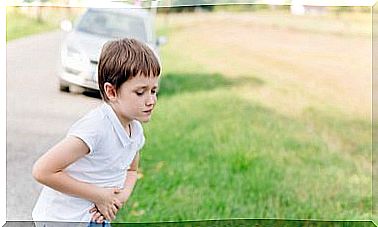6 Tips For A Safe Pregnancy After A Miscarriage

Concern about having a safe pregnancy is a problem for many women. This is especially true if you’ve already had the difficult experience of a miscarriage. The first thing women need to do is make sure that the cause of the miscarriage has been corrected or treated. The next step is to give the body time to recover and prepare for another pregnancy. Learn more about safe pregnancy after a miscarriage below .
This process requires time, attention, and physical and psychological care to ensure that both parents are prepared. Therefore, doctors recommend a number of studies that can help determine the cause of a miscarriage.
With these results, doctors can then determine the resources needed to treat problems that may affect future pregnancies.
6 tips for a safe pregnancy after a miscarriage
1. Take the time to relax emotionally
A miscarriage can lead to intense feelings of fear, guilt, and loss. Of course, these are not the feelings you want to use to approach your next pregnancy.
Also, keep in mind that the further your pregnancy was before the miscarriage, the longer it will take for your emotional wounds to heal.
2. Make sure your reproductive organs are not disrupted
Damage and infection to a woman’s internal organs can occur after a miscarriage. In extreme cases, there is even a risk of reduced fertility or a loss of fertility.
It is important that you contact your gynecologist to rule out any physiological problems. Your doctor may recommend the following medical tests to help determine the cause of previous miscarriages and prevent them from occurring in the future:
- Blood tests. In this way, your doctor can check your immune system and the hormonal balance necessary for a safe pregnancy.
- Genetic test. Genetic testing ensures that your and your partner’s chromosomes are not the cause of a miscarriage.

- Ultrasound to examine the woman’s abdomen.
- Hysteroscopy. A uterine specimen is used to look at a woman’s fallopian tubes and uterus.
- Sonohysterogram. This enables doctors to check that the floor of the uterus is in good condition.
It’s also important that you wait long enough for your menstrual bleeding to return to normal – especially in the luteal phase (the time after ovulation until your next menstrual period). If you want to get pregnant again, your uterus needs to be healthy and strong. You must also have normal levels of estrogen.
3. Make sure you are taking prenatal vitamins for safe pregnancy after a miscarriage
When planning to get pregnant, experts recommend that women take good quality prenatal vitamins. This way, you increase the quantity and quality of the essential nutrients babies need for development.
You can find over-the-counter vitamins at pharmacies, drug stores, or ask your doctor for a prescription. The most important elements your body needs are folic acid, calcium, and iron.
4. Avoid excessive physical exertion at home and at work
The daily chores around the house can be dangerous when you are pregnant. Therefore, you should avoid exposing yourself to chemicals and lifting heavy objects.
Using stools or ladders to reach elevated objects is just as dangerous as lifting garbage bags that contain toxic components. Also, make sure you don’t stand too long, especially if you are near the stove or stove.
5. Monitor your weight changes
Your body needs more nutrients for a safe pregnancy. Hence, gaining a few pounds is normal. However, it is important that you make sure that your weight gain is healthy.
If you gain too much weight, it will be harder to lose it afterward. If you haven’t gained enough weight, your baby is at risk of not growing enough after birth.
6. Improve your eating habits for a safe pregnancy after a miscarriage
In addition to drinking plenty of water, you should also eat six balanced meals each day. The most recommended foods for pregnant women are those that are high in folic acid.
These include: cereals, asparagus, lentils, fish and oranges. Remember that folic acid helps babies develop properly.

In addition, you should limit your caffeine intake during pregnancy. If you’re hungry for snacks between meals, make sure you choose healthy options, such as fruits that contain natural sugars that will increase your energy levels.
We hope that following these recommendations will also help you achieve a safe pregnancy after a miscarriage.
Remember, before you get pregnant again, you should be emotionally prepared for another pregnancy. In this way you ensure that the 9 months of the new pregnancy will be a caring and satisfying process for you and your future child.









